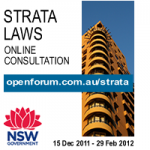A Greenhouse Gas Trajectory Change-Enabler
The Fifth World Urban Forum in Rio de Janeiro, Brazil, was this week the location of the launch of the Global Greenhouse Gas Standard for cities, enabling a common approach for cities to calculate greenhouse gas emissions within their boundaries. The Standard was launched by UNEP, UN-HABITAT and the World Bank.
The Standard builds on a number of existing protocols and methodologies, including the WBCSD, ICLEI and IPCC, and a host of existing efforts by cities to estimate baseline emissions and apply emissions accounting tools.
The Standard introduces uniformity to a much-needed area of focus. Disappointment with global top-down efforts to address climate change has led to greater consideration of how regions and cities can act as catalysts for change. This is just one such initiative – albeit conceived prior to the UNFCCC meetings in Copenhagen.
In an ever-urbanising modern society, the Standard enables relative greenhouse intensity levels and growth to be compared, thus providing opportunities for inter-urban learning.
Formalisation of the inclusion of scope 2 electricity emissions within urban emissions accounts will likely place more pressure on cities to consider options to enable cleaner electricity to their communities. An obvious outcome is more emphasis on methods to incentivise distributed local energy generation options such as solar PV, Solar Hot Water, and co-generation. Enablement might include measures such as information provision, offering local Government tax benefits, and changing development consent criteria.
The Draft International Standard for Determining Greenhouse Gas Emissions, 23 March 2010, can be found here.
Andrew Jones is a carbon markets and renewable energy markets specialist. Andrew has spent his career providing strategic advice and innovative solutions to a range of consulting clients, and developing low-carbon project solution structures and projects from a consulting engineering and commercial venturing perspective. He is experienced in commercial low-carbon venture structuring, partnering, and management of prefeasibility and feasibility studies for different low-carbon energy technologies and applications.
This piece was first published on Andrew’s regular blog climatecommercial.wordpress.com














